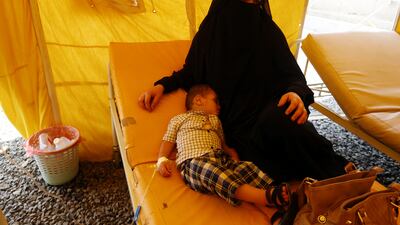Suspected cholera cases in Yemen are expected to at least double by the end of the year to over 600,000, the International Committee of the Red Cross warned on Sunday.
That toll means one in every 45 Yemenis will have contracted the disease.
“The great tragedy is that this cholera outbreak is a preventable, man-made humanitarian catastrophe. It is a direct consequence of a conflict that has devastated civilian infrastructure and brought the whole health system to its knees,” ICRC president Peter Maurer said as he arrived in Yemen for a five-day visit to discuss the humanitarian situation in the country with all parties to the conflict.
“I find this needless suffering absolutely infuriating. The world is sleepwalking into yet more tragedy,” he added.
Yemen's health care system faces total collapse as the country continues to be gripped by war.
Pro-government forces — supported by a Saudi-led military coalition — are fighting to retake areas of the country from Iran-backed Houthi rebels. Adding to the chaos, militant groups, including Yemen's local Al Qaeda affiliate, have taken advantage of the war to extend their reach in the country.
The fighting has destroyed sewage networks and water treatment stations across the country, leading to the rapid spread of cholera, the ICRC said.
More than 370,000 people have fallen ill and 1,800 have died since late April in Yemen's second cholera outbreak in less than a year, according to the ICRC and the World Health Organisation.
Less than 45 per cent of the country's medical facilities are now operational meaning the country's health system is unable to help all those in need of treatment, the ICRC said. Other diseases, like malaria and dengue fever, are also going untreated.
“Further deaths can be prevented, but warring parties must ease restrictions and allow the import of medicines, food and essential supplies and they must show restraint in the way they conduct warfare,” said Mr Maurer.
* Additional reporting by Agence France-Presse

